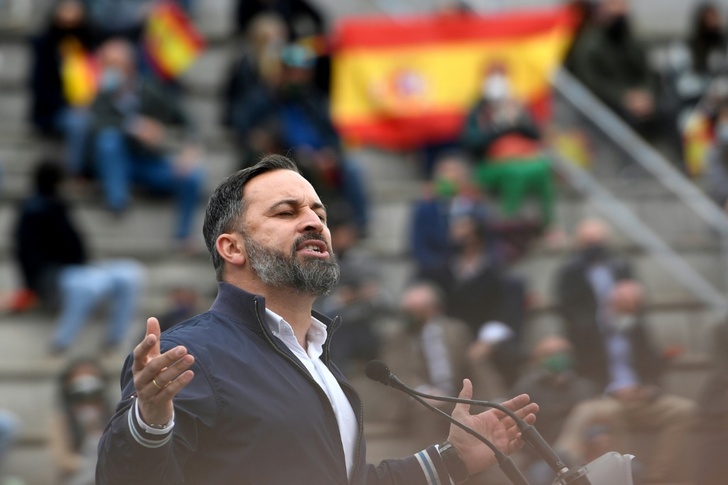The Spanish far-right's denial that gender violence exists is causing a headache for the conservative Popular Party (PP), who may need their help to come to power after next month's general election.
Polls consistently show the opposition PP winning most votes in the snap July 23 vote, but having to rely on an awkward coalition with the anti-feminist Vox movement to be able to form a government.
Spain is a pioneer in the fight against violence against women, approving Europe's first law that specifically cracked down on gender violence in 2004.
It made the victim's gender an aggravating factor in assault cases.
But far-right Vox -- which is polling at around 14 percent -- say gender violence is an "ideological concept we don't recognise" that stigmatises men, and prefer to talk of domestic violence or "intra-family violence".
"Gender violence does not exist, macho violence does not exist," the head of Vox in Valencia, Jose Maria Llanos, said after the far-right party agreed to govern the eastern region in a coalition with the PP last week.
His comments sparked an outcry in a country where parties from across the spectrum have long acknowledged and combated gender violence.
PP leader Alberto Nunez Feijoo, who cultivates an image as a moderate, immediately sought to distance himself, saying in a tweet that "gender violence does exist".
But the left was quick to point to Llanos' comment as proof that a PP-Vox coalition would lead to backsliding.
"Denying gender violence can only be a step backward. That is what is at stake on July 23," Socialist Prime Minister Pedro Sanchez told the El Pais daily.
- 'Walking on eggshells' -
Founded in 2013 by disgruntled former members of the PP, Vox is the third-largest party in parliament.
The controversy is "tainting" the PP "very badly", said Paloma Roman, a political scientist at Madrid's Complutense University.
"Vox is an ally it needs but which it wants to keep at a distance" because of its ultraconservative positions, she told AFP.
The PP is trying to "avoid the theme of gender violence", but this is "mission impossible", she added.
"It is walking on eggshells" until the general election, Roman said.
Vox emerged as kingmaker in several regions and municipalities after regional and local elections on May 28 and it has pushed the issue in its negotiations with the PP to form governments.
Offices dedicated to gender equality have been abolished in several cities where Vox and the PP have formed coalition governments or had their names changed to departments for "families".
The programme signed between the two parties in Valencia omitted the phrase "gender-based violence", replacing it with Vox's preferred "intra-family violence", which it argues "guarantees the equality of all victims".
- Govern 'at any price' -
Vox leader Santiago Abascal has repeatedly argued that gender is "an ideological concept".
In the western region of Extremadura, the local PP leader, Maria Guardiola, has refused to form a government with Vox because of the far-right party's position.
"I can't let into government those who deny macho violence," she said.
Roman said the PP was showing itself to be "incoherent".
"The only thing clear is that it wants to come to power at any price," the political scientist added.
Since that 2004 law came into effect Spanish society has accepted that gender violence is a problem that "must be addressed", Roman said.
mdz/mg/ds/fg
© Agence France-Presse
Your content is great. However, if any of the content contained herein violates any rights of yours, including those of copyright, please contact us immediately by e-mail at media[@]kissrpr.com.
Source: Story.KISSPR.com

